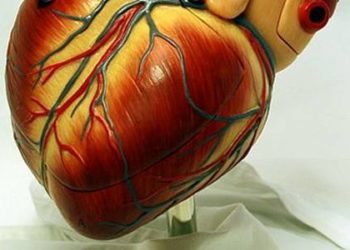The UKPDS: Reducing diabetes-related morbidity and mortality [Classics Series]
1. For patients with type 2 diabetes mellitus, pharmacologic blood glucose control with sulfonylureas or insulin significantly reduces the risk of microvascular complications, but not macrovascular complications.
2. Metformin therapy is associated with significant reductions in diabetes-related and all-cause mortality; thus, it is considered first-line therapy for type 2 diabetes mellitus.
3. Strict control of blood pressure in type 2 diabetes mellitus reduces the risk of both microvascular and macrovascular complications, along with diabetes-related mortality.
Original Date of Publication: September 1998
Study Rundown: The United Kingdom Prospective Diabetes Study (UKPDS) produced a number of publications exploring the effectiveness of different interventions in reducing diabetes-related morbidity and mortality. In this report, we highlight three of the most influential papers yielded from this initiative: 1) UKPDS 33, which explored the use of sulfonylureas and insulin, 2) UKPDS 34, which examined the effects of metformin, and 3) UKPDS 38, looking at the effects of tight blood pressure control in patients with type 2 diabetes mellitus (T2DM).
UKPDS 33 and 34 demonstrated that intensive blood glucose control with a sulfonylureas, insulin, and/or metformin significantly reduced the incidence of microvascular complications of T2DM when compared to lifestyle modifications alone (i.e., diet, weight control). In these studies, microvascular complications were defined as retinopathy, vitreous hemorrhage, neuropathy, and renal failure. Pharmacologic therapy using any of these agents was associated with significant reductions in hemoglobin A1c (HbA1c) levels. Unfortunately, there were no significant differences between pharmacologic therapy and lifestyle modifications alone in terms of the development of macrovascular complications (i.e., coronary heart disease, peripheral arterial disease, cerebrovascular disease). Metformin, however, was shown to significantly reduce the risk of diabetes-related and all-cause mortality. With regards to blood pressure control, UKPDS 38 demonstrated that treatment with angiotensin-converting-enzyme inhibitors (ACE-Is) or beta blockers to lower blood pressure below 150/85 mmHg was associated with significantly fewer microvascular complications, macrovascular complications, and diabetes-related deaths when compared to control subjects with less tight blood pressure control (i.e., <180/105 mmHg).
In summary, the use of pharmacologic agents (i.e., sulfonylureas, insulin, metformin) in patients with T2DM significantly reduces their risk for developing microvascular complications. Because metformin is linked with reduced diabetes-related mortality, all-cause mortality, and lower risk of hypoglycemia, it is often considered the first-line pharmacotherapy in managing T2DM. Moreover, tight blood pressure control has been shown to significantly reduce the incidence of microvascular and macrovascular complications, as well as diabetes-related mortality. The long duration, effective randomization, and large study population of the UKPDS are factors that have made its findings highly influential.
Click to read UKPDS 33 in The Lancet
Click to read UKPDS 34 in The Lancet
In-Depth [randomized, controlled studies]: In UKPDS 33 and 34, patients with newly diagnosed T2DM aged 25-65 were recruited from 23 participating centres and followed over 10 years. Both papers were randomized trials that allocated patients to different treatment groups or conventional management, which involved only lifestyle modifications. UKPDS 33 demonstrated that median HbA1c levels were significantly lower in the treatment group (i.e., patients receiving sulfonylureas or insulin) at 7.0% compared to 7.9% for the control group (P<0.0001). Moreover, the risk of microvascular complications was significantly reduced in the treatment group (RR 0.75; 95% CI 0.60-0.93). Patients in the treatment group, however, did experience significantly higher rates of hypoglycemic episodes than the control group (P<0.0001). Similarly, treating patients with T2DM with metformin was found to be beneficial in UKPDS 34. When compared to conventional therapy (i.e., lifestyle changes alone), treatment with metformin was found to reduce diabetes-related death (RR 0.58; 95% CI 0.37-0.91) and all-cause mortality (RR 0.64; 95% CI 0.45-0.91). Moreover, metformin therapy was linked with fewer hypoglycemic episodes than treatment with sulfonylureas and insulin.
In UKPDS 38, which assessed the effects of blood pressure control, patients with newly diagnosed T2DM were again recruited from 23 participating hospitals and were followed over 10 years. Blood pressure was measured at clinic visits every 3-4 months. Patients were randomized to either tight blood pressure control (i.e., <150/85 mmHg) or less tight control (i.e., <180/105 mmHg). Patients were treated with ACE-Is or beta-blockers to achieve target blood pressures. It was found that patients in the tight control group experienced a 32% reduction in the risk of diabetes-related morality compared to the less tight group (P=0.019). Diabetes-related mortality was defined as deaths resulting from myocardial infarction, sudden death, stroke, peripheral vascular disease, renal disease, hyperglycemia, or hypoglycemia. In addition, the risk of macrovascular complications was demonstrated to be 34% lower in the tight control group (P=0.019).
Image: PD
©2012-2014 2minutemedicine.com. All rights reserved. No works may be reproduced without expressed written consent from 2minutemedicine.com. Disclaimer: We present factual information directly from peer reviewed medical journals. No post should be construed as medical advice and is not intended as such by the authors, editors, staff or by 2minutemedicine.com. PLEASE SEE A HEALTHCARE PROVIDER IN YOUR AREA IF YOU SEEK MEDICAL ADVICE OF ANY SORT.







